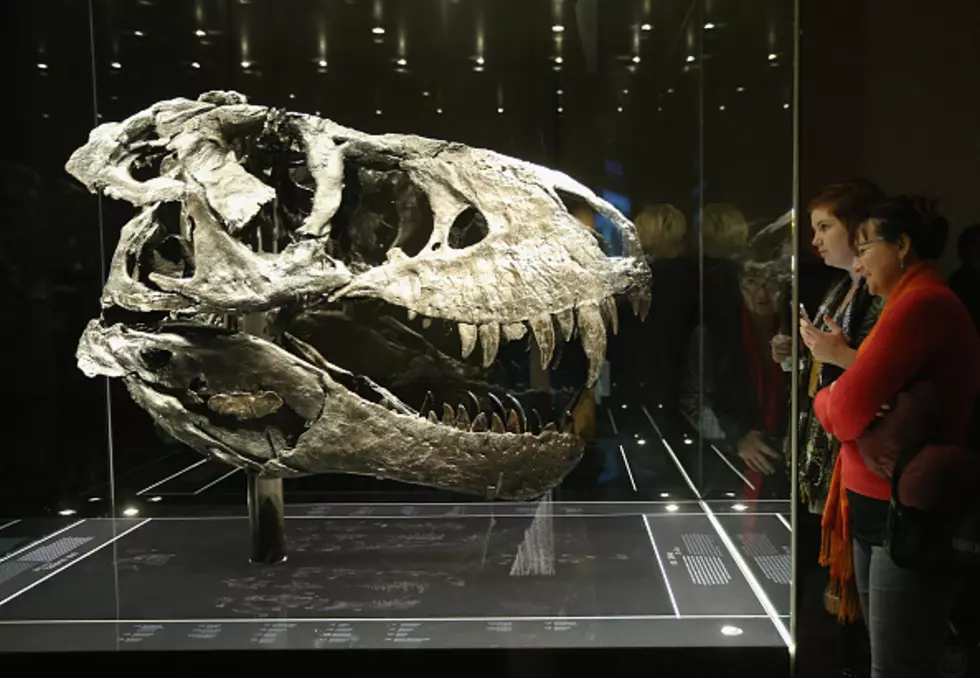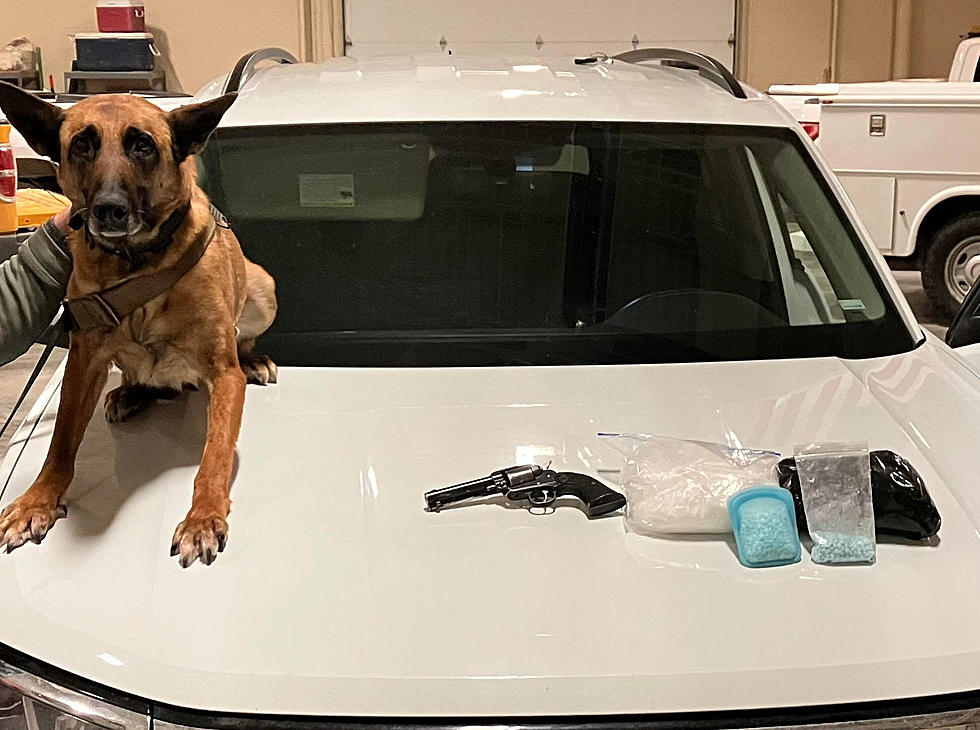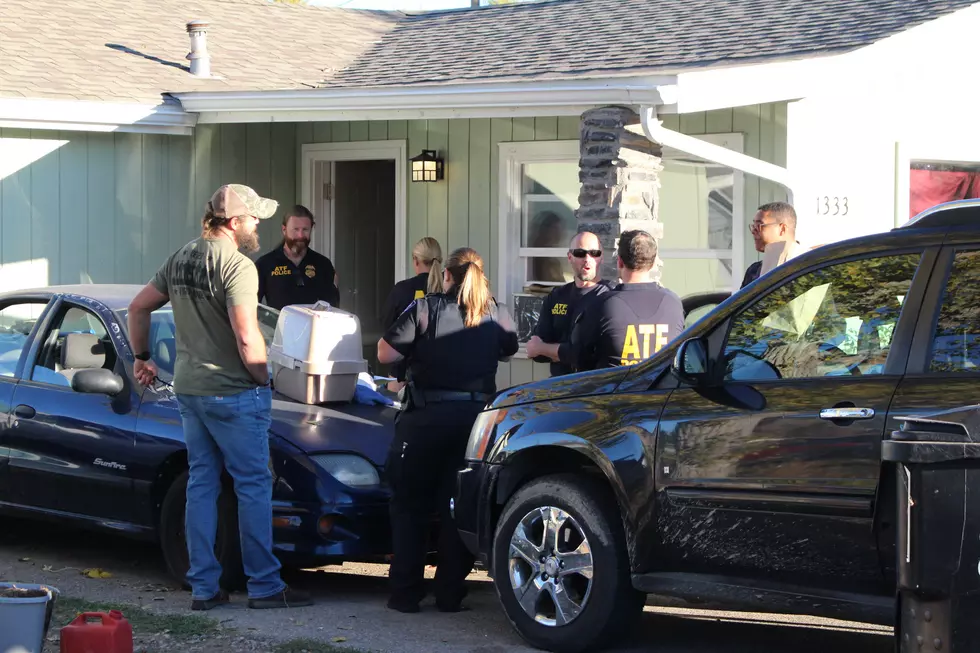
Editorial: Patients and Colleagues Offer Support for Casper Doctor After License Suspension
Editors Note: The following article is the sole work of the author and it does not necessarily reflect the views, beliefs, or opinions of K2 Radio News or of its parent company, Townsquare Media. The thoughts expressed are solely those of the writer of this piece.
I hesitated before I pushed the 'Publish' button. It's the first time that's happened to me, mainly because the majority of the stories I write are positive, community-focused stories. I like happiness. I like positivity. I like using my "powers" for good, which is why I stick to editorials.

I'm not ashamed of that. My pieces have told the stories of this community, like a Casper man reunited with his wife after a near-death experience due to COVID-19. I got to share the story of a man donating thousands of dollars to help support homeless teenagers in Natrona County. And there was the story of a Wyoming couple who went to Ukraine during a literal war, in order to adopt two special needs children.
These stories are important. They matter. And most of all, hopefully, they inspire others. That's what I try to do with the majority of the stories I write. I try to inspire others.
But sometimes, as reporters, we're faced with stories that we don't necessarily want to tell. They're not positive. They're not inspiring. But, they're important nonetheless, and it is our duty as reporters to, well, report on them.
Such was the case with a story I wrote Tuesday, about a local doctor whose license was suspended due to him receiving amphetamines from outside of the United States.
I knew it was going to be a big story. I knew it was an important story. And I knew the public had a right to know.
Read More: Casper Doctor Has License Suspended After Drugs Intercepted By Homeland Security
But I still didn't like it.
I hesitated before I pushed the 'Publish' button. I sent a text message to my girlfriend and a few friends, telling them how much I didn't want to do it.
"So, I've got this story about a doctor whose license is being suspended because he received drugs," I wrote. "And like, yeah, that's bad. And it's a good story. But I'm just sitting here hesitating to press the 'Publish' button because, like, there goes this dude's career and reputation. And it's weird, the power we have as reporters. And I don't know if I like it. This is why I like happy stories."
But, I published it anyway. Because that's my job.
I didn't feel great about it though.
But then, something funny happened. As I expected, the story blew up. And of course, I read the comments. And, of course, some of the comments were...ignorant. But the majority of them were actually quite positive. Former patients and colleagues came to this doctor's defense. And while they didn't excuse the mistakes that he made - and he did make mistakes - they also acknowledged the possible reasons of why he made them.
Let's talk about addiction.
According to the complaint filed with the Wyoming Board of Medicine, "Dr. Anderson told the investigators he had been using controlled substances since September 2021, due to personal and professional stressors. Dr. Anderson allegedly said he had avoided seeking legally prescribed controlled substances because he did [SIC] want others to know of his personal or professional struggles or his use of controlled substances."
And isn't that how it goes? To speak personally and candidly, I am a recovering alcoholic. I've been sober for 7 years and some days are easier than others. Addiction is a seductive path; so much so, that you don't even realize it's the path you're headed down until it's too late to turn back.
One of the biggest lessons I've learned in my own journey is this: Many people will tell you that "addiction is a disease," and maybe that's true. But I've always felt more like addiction isn't a disease; it's a symptom. It's not the nucleus of something, it's the result. For many addicts, the actual disease is trauma. The addiction is just the part that comes after.
I won't pretend to know anything about Dr. Anderson's life. I don't know him personally. I don't know what he goes through on a daily basis. I don't know how hard his job is. I don't know what he does with his personal life; who he loves, who he's lost, whose shadow he might feel he's constantly living under. I don't know any of these things. But none of them would surprise me if they were listed as the reasons why he allegedly turned to drugs.
Let's face it; healthcare workers have had a tough few years. They've been overworked, they've been idolized, they've been demonized, they've been spit at. They've been doing their best for two years, in addition to anything and everything going on at home. And no, none of that excuses the mistakes that were made. But those mistakes don't reveal a person's character, so much as they reveal a person's breaking point.
Again, I've never met Dr. Anderson. I probably never will. But I don't think he's a bad person. I don't think most addicts are "bad people." I'm not mad at Dr. Anderson; I'm sad for him. I'm sad for him the way I'm sad for my mother, who was also an alcoholic. She died in April of 2006 because she didn't think that she could turn to anybody else, either. Whether it was pride, guilt, shame, or some other reason, my mom never felt like she could ask for help. She never felt like she could speak up. She was drowning in an ocean of addiction and she was too scared to reach her hand out because she didn't think anybody would grasp it.
And I'll tell Dr. Anderson the biggest thing I wish I could tell my mom: It's okay to reach out. Somebody will take your hand. It's okay to be vulnerable. It's okay to not be okay. This moment, this time in your life, does not define you. You are not alone. And this is not the end of your story.
But it is the end of this story. I could say a million other things about Dr. Anderson, but I don't know him. A lot of other people do, though. And when the story came out about his license suspension, a lot of them took to social media to offer their support. These are just some of the comments.
The story I wrote Tuesday was an important one. But this is the real story of Dr. Anderson, and it's even more important.
Patients and Colleagues Offer Support for Casper Doctor After License Suspension
More From Wake Up Wyoming









